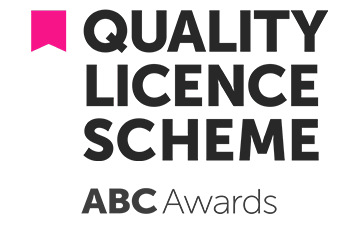FLASH SALE - 75% OFF All Courses
Use Discount Code: SA75 at checkout
SALE
ENDS:
Use Discount Code: SA75 at checkout
ENDS:
 Classroom Behaviour Diploma
Classroom Behaviour Diploma
Certified
Certified

Certified
Certified
This course looks at the area of classroom behaviour and gives practical tips and strategies to use to be successful when working with pupils.
The resources are up to date and relevant and cover areas such as research into behaviour, how to make a strong first impression, how to manage inappropriate and confrontational behaviour, working with children with SEN, how to build good relationships and develop positive learning environments.
This course is aimed at teachers, lecturers, supply teachers, teaching assistants and cover supervisors; indeed anyone working with children.
Syllabus
Module One - Key theories relating to behaviour, and identification of causes of challenging behaviour
The Learning Outcomes for this assignment are:
- To explain why children behave in a particular way by looking at key theories.
- To understand the causes of challenging behaviour.
- To look at the structure of the brain.
- To look at the way the brain and its development has an impact on behaviour.
Module Two – The Background – Key research and documents relating to classroom behaviour. Identifying types of behaviour
The Learning Outcomes for this assignment are:
- To develop an understanding of key research and documents relating to classroom behaviour.
- To develop an understanding from key research and documents, systems and approaches that are successful in the management of behaviour.
- To reflect on your own practice through developing and conducting a behaviour audit in your setting.
- To identify types of classroom behaviour faced by staff.
Module Three – How to make a strong first impression
The Learning Outcomes for this assignment are:
- To explain how to create a presence and have an initial impact on pupils.
- To look at the importance of structure and developing rules and routines.
- To understand the importance of body language and vocal tone.
- To develop an understanding of Neuro-Linguistic Programming (NLP) in behaviour management.
- To identify the language of behaviour management by looking at successful scripts to use.
Module Four – Creating positive learning environments and changing behaviour through use of effective behaviour management strategies
The Learning Outcomes for this assignment are:
- To understand how teachers can create positive learning environments.
- To identify the 10Rs of Positive Behaviour Management.
- To identify the types of rewards that can be used in the classroom.
- To develop an understanding of the importance of consistency.
- To look at a range of practical strategies to use to manage behaviour in the classroom.
Module Five – Working with children with Special Educational Needs (SEN)
The Learning Outcomes for this assignment are:
- To identify the reasons for the increase in numbers of children with SEN.
- To develop an understanding of systems used for the classification of SEN.
- To understand current legislation for children with SEN and how this impacts on your work.
- To look at a range of syndromes and conditions and to identify their key characteristics.
- To develop an understanding of strategies to use in the classroom to support pupils with syndromes and conditions.
Module Six – Managing Conflict and Confrontation
The Learning Outcomes for this assignment are:
- To understand the causes of conflict, confrontation and anger.
- To explain the key phases in the anger cycle.
- To develop an understanding of how pupils express their anger.
- To look at general strategies we can use to reduce conflict, confrontation and anger in the classroom.
Module One - Key theories relating to behaviour, and identification of causes of challenging behaviour
The Learning Outcomes for this assignment are:
- To explain why children behave in a particular way by looking at key theories.
- To understand the causes of challenging behaviour.
- To look at the structure of the brain.
- To look at the way the brain and its development has an impact on behaviour.
Module Two – The Background – Key research and documents relating to classroom behaviour. Identifying types of behaviour
The Learning Outcomes for this assignment are:
- To develop an understanding of key research and documents relating to classroom behaviour.
- To develop an understanding from key research and documents, systems and approaches that are successful in the management of behaviour.
- To reflect on your own practice through developing and conducting a behaviour audit in your setting.
- To identify types of classroom behaviour faced by staff.
Module Three – How to make a strong first impression
The Learning Outcomes for this assignment are:
- To explain how to create a presence and have an initial impact on pupils.
- To look at the importance of structure and developing rules and routines.
- To understand the importance of body language and vocal tone.
- To develop an understanding of Neuro-Linguistic Programming (NLP) in behaviour management.
- To identify the language of behaviour management by looking at successful scripts to use.
Module Four – Creating positive learning environments and changing behaviour through use of effective behaviour management strategies
The Learning Outcomes for this assignment are:
- To understand how teachers can create positive learning environments.
- To identify the 10Rs of Positive Behaviour Management.
- To identify the types of rewards that can be used in the classroom.
- To develop an understanding of the importance of consistency.
- To look at a range of practical strategies to use to manage behaviour in the classroom.
Module Five – Working with children with Special Educational Needs (SEN)
The Learning Outcomes for this assignment are:
- To identify the reasons for the increase in numbers of children with SEN.
- To develop an understanding of systems used for the classification of SEN.
- To understand current legislation for children with SEN and how this impacts on your work.
- To look at a range of syndromes and conditions and to identify their key characteristics.
- To develop an understanding of strategies to use in the classroom to support pupils with syndromes and conditions.
Module Six – Managing Conflict and Confrontation
The Learning Outcomes for this assignment are:
- To understand the causes of conflict, confrontation and anger.
- To explain the key phases in the anger cycle.
- To develop an understanding of how pupils express their anger.
- To look at general strategies we can use to reduce conflict, confrontation and anger in the classroom.
FLASH SALE
75% OFF All Courses
Use Discount Code: SA75 at checkout
FLASH SALE
75% OFF
All Courses
Use Discount Code:
SA75
at checkout
Accreditation
This course has been accredited by Online Academies. On successful completion of this course you will be able to download or print off a PDF of your Online Academies Certificate (please note: you will also be given the opportunity to have a hard copy of the certificate printed off and posted out to you for a small additional charge). If you would like to view a sample of the certificate, please click here.

Online Academy work with Quality Licence Scheme (Quality Licence Scheme). The Quality Licence Scheme is part of the Skills and Education Group, a charitable organisation that unites education and skills-orientated organisations that share similar values and objectives. With more than 100 years of collective experience, the Skills and Education Group’s strategic partnerships create opportunities to inform, influence and represent the wider education and skills sector.
Assessment
At the conclusion of each module there is a multiple choice question assessment. This will help you remember the main points of the lesson and act as a check that you have retained the essential knowledge and understanding of that particular section. The results can be seen instantaneously and you can correct wrong answers. When the result is satisfactory you can progress to the next module.
Course Outcomes
Once you have successfully completed all the modules for your course you will be awarded:
A Diploma issued by Online Academies
 Newsletter
Newsletter
Be the first to get news and exclusive deals



